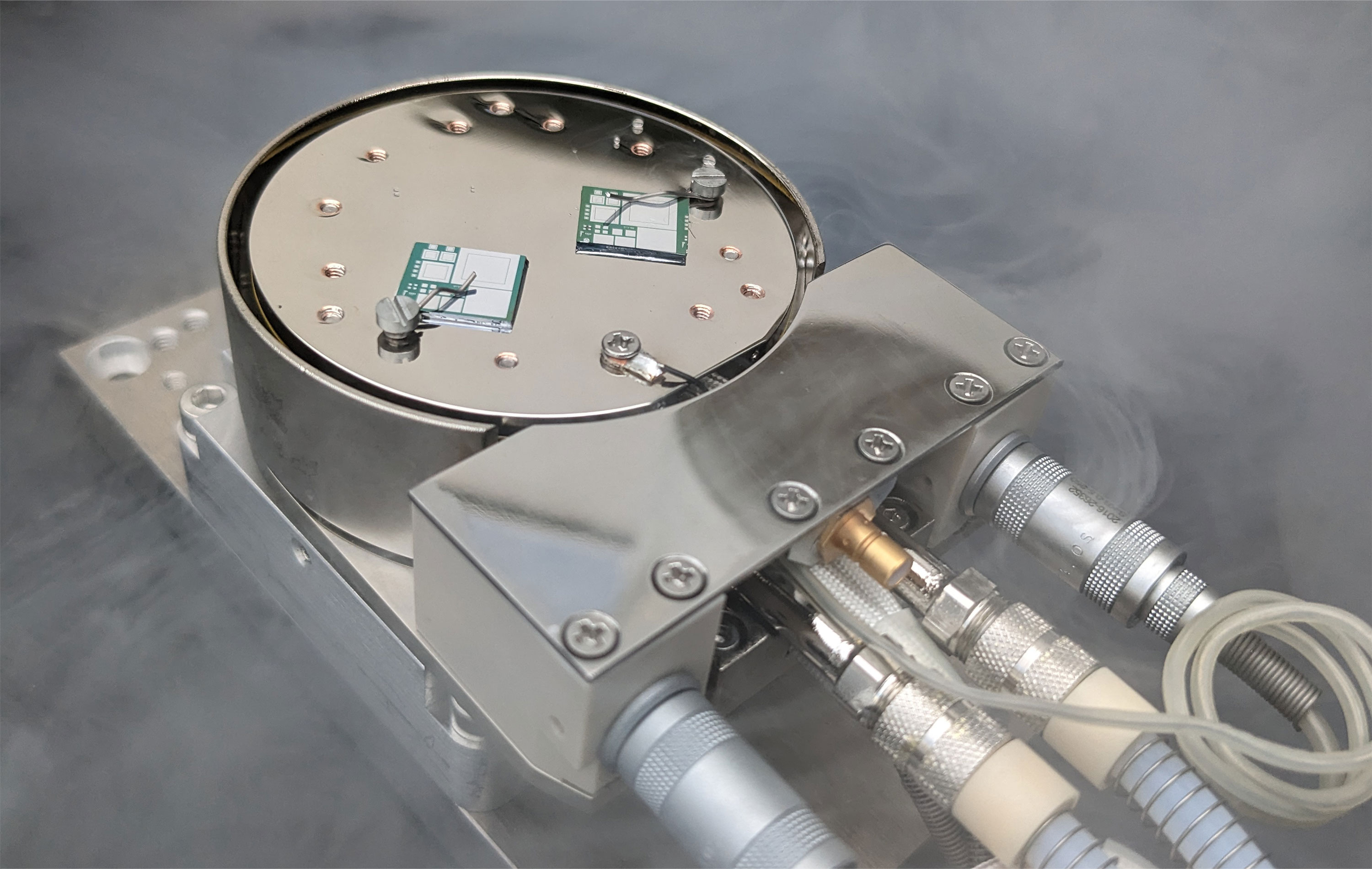Reliable components for quantum computers
In the recently launched project VorZuQ, Fraunhofer IKTS aims to extend its thermo-mechanical analysis methods into the cryogenic temperature range and thus create the first applications for quantum computing-related materials and structures.

Quantum computers are set to revolutionize computing. Researchers around the world are working to ensure that these supercomputers will be able to solve problems that even the largest computers have so far failed to solve.
Low operating temperatures
The problem: most quantum computer approaches work on the basis of qubits, which have to be cooled down to a few milli-Kelvin (approx. -273 degrees Celsius) in order to be used. This is not only complex, it also places special demands on the microchips used to control the qubits. Fraunhofer IKTS has set itself the task of investigating their reliability in the cryogenic temperature range in the project “Pre-development for precise reliability testing of materials and systems in quantum technology (VorZuQ)”.
Thermo-mechanical reliability tests in the cryogenic range
The focus is on thermo-mechanical stresses that arise due to the large temperature differences during production and operation and can damage the semiconductor components. To characterize this damage, setups need to be realized that maintain the required low temperatures during the investigation.
At Fraunhofer IKTS, a vacuum chamber and a scanning electron microscope (SEM) are being adapted so that damage scenarios can be experimentally determined using a so-called cryo-stage (holder in which the sample is cooled with liquid nitrogen).
With the technical setups and workflows developed in VorZuQ, it will in future be possible to assess the thermo-mechanical stresses in microelectronic components in the cryogenic temperature range, thus paving the way for a greater reliability of quantum computers.
Project VorZuQ
The project “Pre-development for precise reliability testing of materials and systems in quantum technology (VorZuQ)” is being funded by the Federal Ministry of Education and Research (BMBF) with 477,000 euros as part of the “Quantum Systems Research Program” and will run for three years.